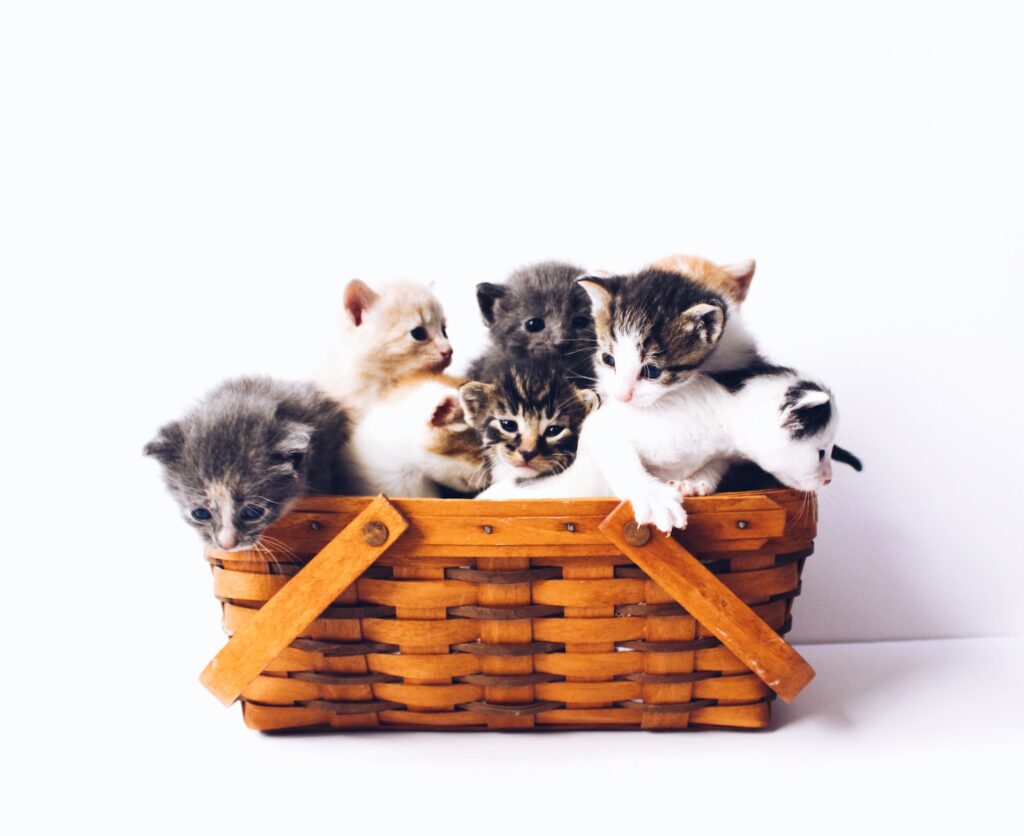Can Cats Eat Peppers? — Yes, They Can
Cats can indeed eat peppers. However, it is important to note that not all types of peppers are safe for cats to consume. While bell peppers are generally considered safe and non-toxic for cats, spicy peppers such as jalapenos or chili peppers should be avoided as they can cause digestive upset and discomfort for your feline friend.
Can Kittens Eat Peppers?
It is not recommended to feed peppers to kittens, especially spicy varieties. Kittens have sensitive digestive systems that may not be able to handle the spice and heat found in certain peppers. It is always best to consult with your veterinarian about introducing any new foods to your kitten’s diet.
Things to consider when feeding peppers to kittens?
When considering feeding peppers to kittens, it is important to keep their young age and developing digestive system in mind. The capsaicin found in spicy peppers can be too harsh for their delicate systems and may cause gastrointestinal distress.
Nutritional Benefits of Peppers for Cats — Why Peppers are Good for Cats?
Vitamin C Boost
Peppers are rich in vitamin C, which is beneficial for cats just as it is for humans. Vitamin C is important for the immune system, skin health, and overall well-being. Including peppers in your cat’s diet can help provide a natural source of this essential vitamin.
Hydration Support
Peppers, particularly bell peppers, have a high water content. This can contribute towards keeping your cat hydrated, especially if they are not particularly fond of drinking water. The added hydration can be beneficial for their urinary tract health and overall hydration levels.
Source of Antioxidants
Peppers are packed with antioxidants that help combat free radicals and reduce oxidative stress in your cat’s body. These antioxidants can contribute to their overall health by supporting their immune system and reducing the risk of certain diseases.
Digestive Aid
The fiber content in peppers can aid in digestion and promote a healthy gastrointestinal system for your cat. Including peppers in their diet can help regulate bowel movements and prevent constipation.
Weight Management
Peppers are low in calories and can be a great addition to your cat’s diet if they need to manage their weight. They provide flavor and nutrients without adding excessive calories, helping your cat maintain a healthy weight.
Potential Allergies: Can Cats Be Allergic to Peppers?
While cats can develop allergies to various foods, peppers are not considered a common allergen for cats. However, it is always important to monitor your cat for any signs of allergic reactions when introducing a new food to their diet.
Symptoms of Pepper Allergies in Cats
- Itching and Skin Irritation: Keep an eye out for excessive scratching, redness, or skin irritation after consuming peppers.
- Vomiting or Diarrhea: If your cat experiences digestive upset, such as vomiting or diarrhea, it could indicate an allergic reaction.
- Difficulty Breathing: In severe cases, cats may exhibit difficulty breathing or other respiratory symptoms. Seek immediate veterinary attention if this occurs.
What to Do If Your Cat Shows Symptoms?
- Discontinue Feeding Peppers: If you suspect your cat is experiencing an allergic reaction to peppers, stop feeding them immediately to prevent further discomfort.
- Consult with a Veterinarian: Reach out to your veterinarian for guidance and advice if your cat shows persistent or severe symptoms. They can provide appropriate treatment and recommend alternative dietary options.
Recommended Amount: How Much Peppers Can a Cat Consume?
Peppers should be given to cats in small, controlled amounts as an occasional treat, rather than a significant part of their daily diet. About a teaspoon of chopped bell peppers or a small taste of cooked bell peppers can be offered to your cat. However, always monitor how your cat reacts to peppers and adjust the portion size accordingly.
Things to Consider When Feeding Peppers to Cats
When feeding peppers to cats, it is important to remember that they should be given in moderation, as excessive amounts can lead to digestive issues. Always remove the seeds and core of the peppers before offering them to your feline friend, as these parts can be difficult to digest and may cause digestive discomfort.
How to Feed Peppers to Cats: A Quick Guide
Feeding peppers to cats can be a delightful and nutritious addition to their diet. Here are a few recipes to try:
Bell Pepper Treats
To make bell pepper treats for your cat, simply chop a small amount of bell pepper into tiny pieces. Offer a few as a tasty and low-calorie treat. Remember to remove the seeds and core before chopping.
Baked Pepper Filling
Create a delicious baked pepper filling by mixing cooked ground meat, such as chicken or turkey, with diced bell peppers. Stuff the mixture into bell pepper halves and bake until the peppers are tender. Allow the filling to cool before serving small portions to your cat occasionally.
Pepper Puree
A nutritious and easy option is to blend cooked bell peppers into a puree. You can add a small dollop of the puree to your cat’s regular meals as a flavorful and vitamin-rich addition. Make sure the puree is smooth and free from any seasoning or spices.
Conclusion
In conclusion, cats can eat peppers, particularly bell peppers, in moderation. They offer nutritional benefits such as vitamin C, hydration support, antioxidants, digestive aid, and weight management. However, it is crucial to avoid feeding spicy peppers to cats, as these can cause digestive discomfort. Always monitor your cat for any signs of allergies and consult with a veterinarian if needed. When feeding peppers, remember to remove seeds and core, offer them in controlled amounts, and consider them as an occasional treat rather than a staple in their diet.






